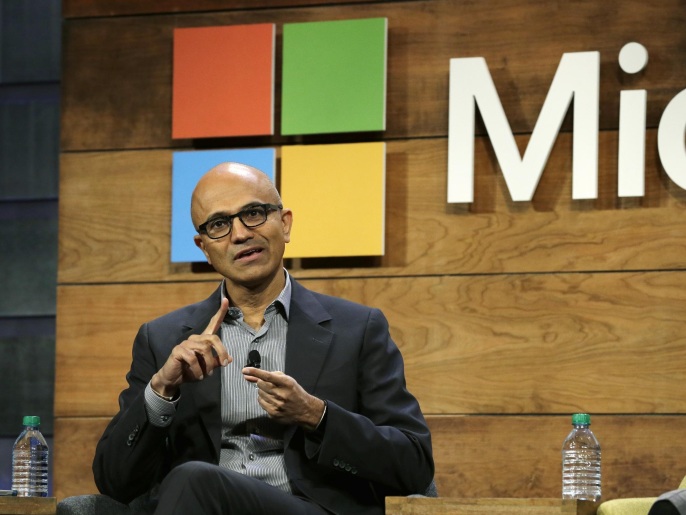In 2015, Microsoft purchased Christian Reaper's to-do list app, Wunderlist, for an amount said to be between $100 million and $200 million.
It was a huge amount of money and a big moment in Reaper's life, but it didn't leave him feeling as one might expect.
"I think selling Underlist was a strange experience for me," the Berlin-based businessman told CNBC.
"I felt like I had lost a child in some way, and as a father of two, I can tell that I really felt depressed. I felt really sad."
Underlist was a simple application that has accumulated about 16 million users in its lifetime.
One of its biggest features at the time was that users could access it on their phones as well as their computers.
It was a big part of Reaper's life, and selling him wasn't easy. "I felt completely detached from my team and from the company I started," he says.
When asked to explain his feelings at the time, Reaper replied, "You should ask my therapist."
Reaper now believes he wasn't mentally prepared to sell the Wonderlist, which he's been trying to grow for 5 years.
"Selling it all of a sudden seemed totally counterintuitive," he said.
When Microsoft made the offer, Reaper's partner, Charlett Prevott, was pregnant.
Prevot co-founded Wonderlist with Reaper and 4 others.
"The choice I had to make as a founder was either I turn the company's growth cycle up and turn this into a profitable business, or I sell this for a very profitable amount of money and my family will have independence," added Reaper.
Reaper and Barefoot finally decided to back off the rolling startup, which nearly saw its businesses crash and burn on several occasions.
"I was completely exhausted and tired and felt that the best decision for all involved was to sell the company," Reaper said.
"When I sold it I never celebrated, and I never went to a fancy dinner. I just ignored every congratulatory email and felt sad. There were moments when I was holding my baby and asking my wife to take it because I was so sad I didn't want him to see his father sad."
It took a year or two to start coming to terms with the sale, Reber said.
"I've gained financial independence, which is great," he continued. "I've built something that has had a really positive impact. People will always remember Wonderlist. It was a great product, and a lot of good people got great jobs at Microsoft. So there's no reason To feel frustrated about it."
Reaper asked Microsoft CEO Satya Nadella to buy the app again (Associated Press)
Appeal to Satya
What happened to Underlist a few years after the sale of the Reaper, was hard for him to bear.
In 2019, Microsoft announced that it plans to shut down Underlist and replace it with Microsoft To Do.
Reaper made an offer to buy the app in an effort to get it back from Microsoft.
"I'm still sad, does Microsoft want to shut down Underlist, even though people love and use the app?" Reaper wrote on Twitter in September 2019.
"Please let me buy it again," he added, appealing directly to Microsoft CEO Satya Nadella and Marcus Ash, vice president of product and engineering at Microsoft.
But his attempt to buy his app again was unsuccessful and Microsoft discontinued Wonderlist in 2020. But Reaper wasn't ready to give up.
"Superlist" is the successor to "Wonderlist"
In 2021, he founded a new to-do list app called Superlist, which he described as the "unofficial successor to Wonderlist."
One of the main reasons Reaper was frustrated when Microsoft shut down Underlist was because he felt the app never became the product he wanted to create.
"What we wanted to do was build an app for collaboration on both personal projects and in business," he said.
What's on the market are either enterprise products like Asana and Trello, or personal to-do list apps like Things or To Do.
"I don't feel like there's an app that combines the two," Reaper said. "You either get very crowded software that was primarily developed for project managers, or you get personal task apps that make it impossible to collaborate between team members."
Superlist aims to be the "perfect bridge" between personal task applications and enterprise collaboration software.
It is designed to help users scale a project from one person to 100 or 200 people.
So far, the company employs about 20 people and has raised $3 million, with another funding round coming soon.
Reaper co-founded another company called Pitch, which rivals Microsoft PowerPoint.
"The reason we started this company is because we felt that presentations were a vehicle that truly drives the world and influences the biggest decisions in business and politics," Reaper said.
"Think of it as if PowerPoint was integrated with SlideShare and Docs," he added.
The 4-year-old company, which employs about 160 people, has raised just over $130 million and was recently valued at $600 million.
"I think it's very easy to raise funding for tech companies at the moment because there seems to be more money than companies in the market," said Reaper.
"As a founder who sets up companies frequently, I feel it was never a good idea to raise them," he added.

